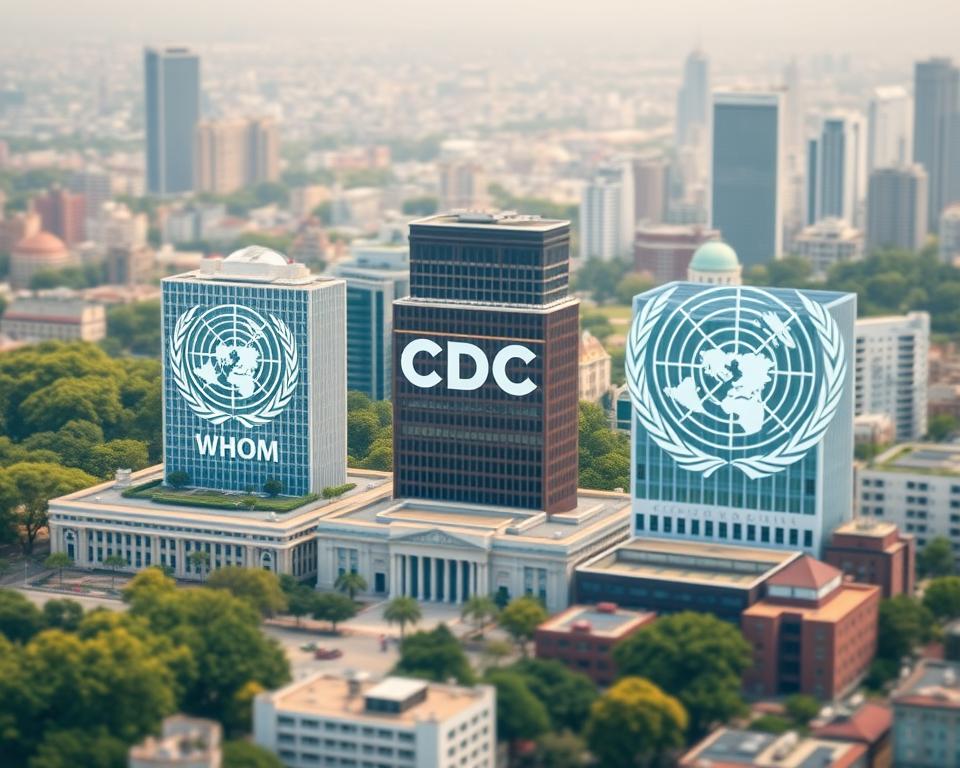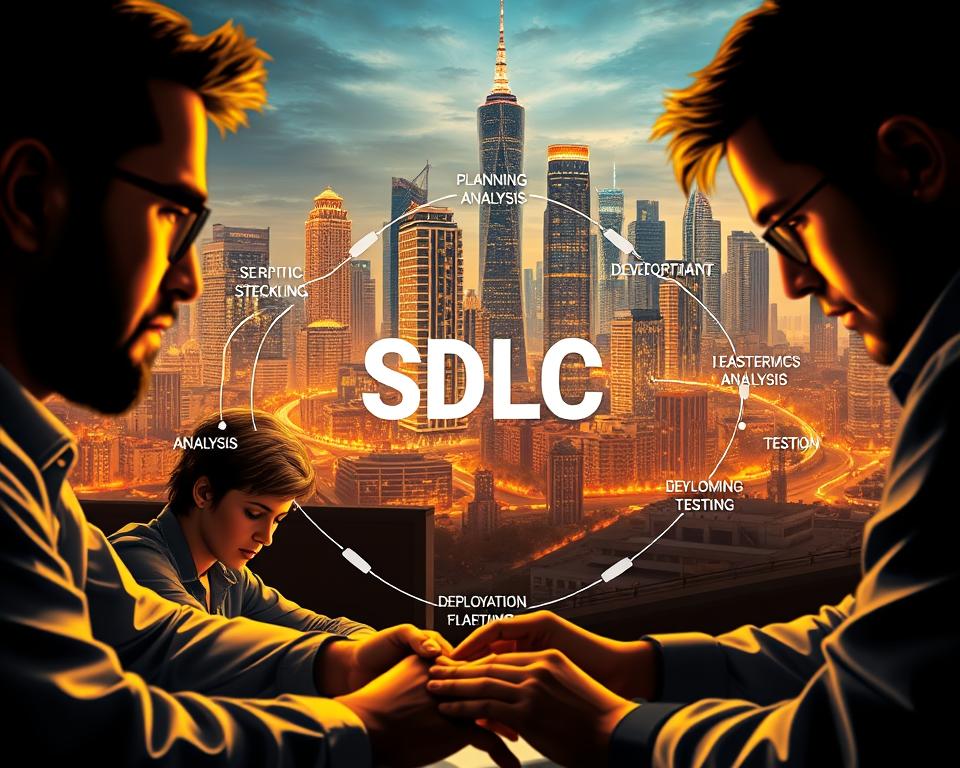
Global Health NGOs in Washington DC
Did you know that more than 1.5 billion people worldwide lack access to essential health services? This staggering statistic highlights the critical role that global health NGOs play in addressing health disparities not just in the United States but across the globe. In Washington DC, a hub for international health organizations, these health nonprofits are at the forefront of combating public health challenges, ensuring that vulnerable populations receive the care they desperately need. Through innovative programs and strategic partnerships, global health NGOs in Washington DC work tirelessly to enhance healthcare access and improve health outcomes both locally and globally.

Key Takeaways
- Global health NGOs in Washington DC address significant health disparities.
- They collaborate with international health organizations to enhance healthcare access.
- Innovative programs developed by health nonprofits are shaping public health initiatives.
- These organizations are vital in influencing health policies on a global scale.
- Engagement and volunteer opportunities abound for those looking to make an impact.
Understanding Global Health NGOs
Global health NGOs play a critical role in addressing health disparities across the globe. These organizations specialize in promoting health equity and improving outcomes for various populations. Understanding global health NGOs involves recognizing their core missions, which include advocacy, education, and health service delivery. Through targeted programs, they strive to resolve pressing health-related issues that affect communities worldwide.
Definition and Purpose
Global health NGOs are non-profit organizations dedicated to improving health conditions through a range of activities. Their primary purpose focuses on advancing health equity and ensuring access to quality healthcare services, particularly in underserved regions. These groups often mobilize resources, engage local communities, and foster international collaboration to implement their health initiatives effectively. By addressing social determinants of health, they enhance the overall well-being of populations.
Role in Public Health
The role of NGOs in public health extends beyond traditional medical assistance. These organizations are vital in shaping health policy, conducting research, and providing education aimed at improving public health systems. NGOs promoting global health engage in grassroots efforts to empower communities and enhance health literacy. They facilitate access to vital health information and resources, helping to bridge the gaps in public health infrastructure.
The Importance of Global Health Initiatives
Global health initiatives play a crucial role in enhancing the well-being of populations worldwide. They seek to tackle persistent health issues that affect vulnerable groups, thereby highlighting the importance of global health initiatives. By focusing on addressing health disparities, these programs aspire to provide equitable access to health services regardless of geographic or socio-economic barriers.
Addressing Health Disparities
Health disparities present a significant challenge in achieving overall global health equity. Various factors such as poverty, education, and cultural beliefs contribute to differing health outcomes across communities. Global health initiatives aim to identify and rectify these disparities through targeted interventions. For instance, non-governmental organizations leverage data-driven approaches to create programs that cater to the specific needs of underserved populations. Such targeted efforts not only enhance the quality of care but also work towards establishing healthier communities.
Innovations in Global Health
Innovations in global health are vital for advancing the effectiveness of health initiatives. These innovations may include the use of telemedicine, mobile health applications, and community health worker programs. By integrating technology with healthcare delivery, organizations enhance access to necessary health services. New methodologies in disease management and prevention further improve health outcomes, demonstrating the dynamic and evolving nature of global health initiatives. NGOs often collaborate with technology companies to develop solutions that meet emerging health challenges.

| Innovation Type | Description | Impact |
|---|---|---|
| Telemedicine | Remote consultation using technology | Increased access to care for remote populations |
| Mobile Health Apps | Health monitoring and education on mobile platforms | Empowerment through self-care and education |
| Community Health Workers | Local health workers providing services and education | Trust-building and tailored community outreach |
Overview of Washington DC Health NGOs
The landscape of health nonprofits in Washington DC reveals a rich tapestry woven from the historical context of health initiatives and the significant influence of key players in global health. An understanding of the evolution of these organizations highlights their crucial role in shaping public health policies and practices over the years.
Historical Context
The historical context of health nonprofits in Washington DC can be traced back to the early 20th century. As urbanization increased and public health issues gained attention, various organizations emerged to address pressing health concerns. Notably, the establishment of the American Red Cross in 1881 marked a turning point in the mobilization of resources for health crises. This laid the groundwork for other influential groups, which began to form as awareness of global health challenges intensified.
Key Player Influence
Key players in global health have played pivotal roles in the development and advocacy of health policies. Prominent organizations such as the World Health Organization (WHO) and the Centers for Disease Control and Prevention (CDC) have collaborated with local NGOs to implement programs that target health disparities. Their partnerships bring together resources and expertise necessary for addressing issues such as infectious diseases and access to healthcare. The interaction between these key players fosters innovative approaches that continuously shape the direction of healthcare initiatives in the region.
| Organization | Year Established | Focus Areas | Key Contributions |
|---|---|---|---|
| American Red Cross | 1881 | Disaster Relief, Health Education | Leading response to health emergencies, promoting first aid education |
| World Health Organization | 1948 | Global Health Standards, Disease Prevention | Setting international health guidelines, coordinating global health efforts |
| Centers for Disease Control and Prevention | 1946 | Infectious Diseases, Public Health Policy | Research and analysis of public health trends, emergency response initiatives |
Top Global Health NGOs in Washington DC
The landscape of global health in Washington DC features a range of top global health NGOs, each making profound contributions to health equity and well-being worldwide. These notable organizations play vital roles in shaping health policies, implementing programs, and addressing diverse health challenges. Let’s take a closer look at a few influential players along with their noteworthy global health programs and initiatives.
Notable Organizations
Among the top global health NGOs in Washington DC, organizations such as PATH, the Centers for Disease Control and Prevention (CDC), and the Global Fund stand out due to their impactful work. PATH focuses on innovative solutions that improve health care delivery and access, particularly in low-resource settings. The CDC leads national initiatives aimed at preventing disease and promoting health, while the Global Fund mobilizes resources to fight diseases like HIV/AIDS, tuberculosis, and malaria throughout the globe.
Programs and Initiatives
These organizations are known for a variety of global health programs and initiatives that reflect their commitment to addressing pressing health issues. Examples include:
- PATH’s efforts to enhance vaccine delivery systems through innovative technologies.
- CDC’s initiatives such as the Health Communities program, which fosters localized health improvements.
- The Global Fund’s funding programs that support therapeutic treatments and education campaigns in affected regions.
Through these efforts, the top global health NGOs in Washington DC continue making strides toward enhancing public health on a global scale.
Global Health NGOs in Washington DC
Washington DC serves as a hub for numerous global health NGOs dedicated to enhancing public health in both local and international communities. These organizations play a pivotal role in addressing critical health issues through research, advocacy, and direct service initiatives.
Globally recognized, the health nonprofits in Washington DC often focus on diverse areas such as infectious disease control, maternal and child health, and health equity. Their missions not only tackle immediate health concerns but also strive to create sustainable solutions that empower vulnerable populations.
The contributions of healthcare NGOs in DC extend far beyond national borders. Many of these organizations have robust partnerships with international entities, ensuring that health interventions are not only culturally appropriate but also effective within different contexts. By engaging in global dialogues and initiatives, they help shape health policies that can lead to meaningful change across nations.
Additionally, local programs initiated by these NGOs focus on the needs of communities within Washington DC, providing resources like health education, preventative services, and access to care. This dual approach of local and global focus represents the comprehensive scope of global health NGOs in Washington DC.
Partnerships with International Health Organizations
Global health NGOs play a crucial role in enhancing healthcare systems worldwide through robust partnerships with international health organizations. Collaborations with entities such as the World Health Organization and UNICEF serve to amplify resources, knowledge, and reach. These partnerships create a unified front to tackle pressing health issues, particularly in underserved populations.
Collaborative Efforts
Successful collaborative efforts often hinge on the alignment of strategies and resources among various organizations. When global health NGOs join forces with international health organizations, they foster innovation and share best practices. Such collaborations have led to significant advancements in addressing health challenges, including vaccination programs and disease prevention initiatives.
Shared Goals and Objectives
Shared goals in global health are fundamental to the success of these partnerships. Organizations unite to focus on targets like improving maternal and child health, combating infectious diseases, and promoting health education. Through joint initiatives, they maximize their impact and reach, ensuring that vital healthcare services are accessible to populations that need them most.
Funding and Resources for Health NGOs
Health NGOs thrive on various funding and resources that enable them to carry out vital initiatives. Understanding the sources of funding available is crucial for these organizations to maintain their operations and address pressing health issues effectively. Different funding streams provide essential support, ranging from government grants to private donations and partnerships with corporations.
Sources of Funding
The landscape of funding and resources for health NGOs varies widely. Organizations often rely on several sources to sustain their missions:
- Government Grants: Many health NGOs receive funding through federal or state government grants aimed at specific public health goals.
- Private Donations: Contributions from individuals serve as a backbone for many NGOs, enabling them to implement essential health programs.
- Corporate Sponsorships: Partnerships with businesses provide both funding and resources to enhance the capacity of health initiatives.
Grants and Partnerships
Grants for healthcare NGOs play a significant role in the financial ecosystem of health organizations. These grants typically come with specific requirements, focusing on areas such as research, community health, and capacity building. Establishing partnerships with other health entities, organizations, or corporations can lead to collaborative funding opportunities. For many NGOs, these partnerships are a key strategy for securing necessary funding and resources.
| Source of Funding | Advantages | Challenges |
|---|---|---|
| Government Grants | Stable funding for targeted projects | Extensive application processes |
| Private Donations | Flexible use of funds | Volatility in donation amounts |
| Corporate Sponsorships | Increased visibility and resources | Potential alignment issues with corporate values |
Challenges Faced by Health Nonprofits in Washington DC
The landscape for health nonprofits in Washington DC is often fraught with complexities that can hinder their missions. Health organizations encounter multiple challenges that impact both their operational efficiency and their ability to serve communities effectively. These challenges faced by health nonprofits significantly stem from bureaucratic barriers and issues surrounding resource allocation in NGOs, which are critical to maintaining and advancing public health objectives.
Bureaucratic Barriers
Bureaucratic barriers pose significant hurdles for health nonprofits striving to implement effective programs. These obstacles can include lengthy approval processes, complicated regulations, and excessive oversight that slow down initiatives designed to promote health equity. Securing the necessary permits and licenses often diverts vital resources away from actual health services and programs. Nonprofits may find themselves navigating a labyrinth of red tape rather than focusing on their core missions.
Resource Allocation Issues
Resource allocation in NGOs is another pressing concern that affects the sustainability of health initiatives. Many health nonprofits struggle with limited funding, impacting their ability to hire skilled personnel and acquire essential resources. Inefficient allocation of existing funds can lead to discrepancies between planned activities and actual deliverables. Without the right balance of resources, nonprofits may fail to fulfill their mission, which ultimately compromises healthcare access for vulnerable populations.
Advocacy and Policy Influence of NGOs
Global health NGOs play a critical role in shaping health policies that affect communities worldwide. Through effective advocacy by health NGOs, these organizations drive discussions on vital public health issues. Their efforts lead to the adoption of laws and regulations that align with the needs of populations, ensuring that health concerns are prioritized in legislative agendas.
Shaping Health Policies
Health NGOs utilize various strategies to ensure their voices are heard. By engaging with policymakers, they create awareness and promote evidence-based solutions. The influence on health policies is evident when these NGOs provide crucial data and research findings to legislators. Their contributions help bridge the gap between public health needs and legislative action, facilitating more informed decision-making processes.
Engagement in Legislative Processes
Successful legislative engagement by NGOs often includes building coalitions, organizing advocacy campaigns, and mobilizing public support. By collaborating with various stakeholders, these NGOs amplify their message and strengthen their position in discussions regarding health legislation. This multi-faceted approach not only enhances their effectiveness but also ensures that diverse perspectives are included in policy dialogues.
The Impact of Global Health Agencies
The role of global health agencies extends beyond mere support, significantly influencing public health outcomes. Many organizations have achieved remarkable success stories from health NGOs that demonstrate their ability to enact change on a global scale. Whether addressing epidemic outbreaks or improving maternal health, these impactful stories highlight the transformative nature of health initiatives.
Success Stories
Globally recognized health agencies have implemented programs that result in life-saving changes. For instance, the Global Fund has played a pivotal role in reducing the rate of malaria and HIV/AIDS across Africa. Community-level interventions, effective distribution of resources, and education campaigns have led to significant decreases in transmission rates. Another success can be seen with Doctors Without Borders, which has expanded access to healthcare in war-torn regions, showcasing the profound impact of global health agencies on vulnerable populations.
Measuring Effectiveness
Measuring effectiveness of global health initiatives is crucial for understanding their impact. Quantitative metrics, such as reduction in disease prevalence, increase in vaccination rates, and improved health literacy, provide essential feedback. In addition, qualitative assessments through community surveys offer insights into the programs’ perceived value. Utilizing these metrics ensures that global health agencies can adapt and develop strategies that enhance their effectiveness, thus reinforcing their commitment to improving health outcomes worldwide.
Volunteer Opportunities with Healthcare NGOs in DC
Washington DC offers a myriad of volunteer opportunities with healthcare NGOs, serving as a vital gateway for those looking to contribute to community health efforts. From administrative roles to active participation in health initiatives, individuals can find various ways to make a significant impact. Many organizations actively seek support, enabling volunteers to play an essential role in addressing local health challenges.
Getting Involved
There are several paths for getting involved in health initiatives through NGOs in the district. Interested individuals can explore opportunities across different sectors, such as:
- Health education programs aimed at enhancing awareness about diseases.
- Community outreach campaigns focusing on preventative care.
- Support roles that help facilitate fundraising events.
- Research projects investigating key health issues within the community.
Volunteers can reach out directly to various NGOs to learn more about specific roles that match their skills and interests.
Benefits of Volunteering
The benefits of volunteering for NGOs extend well beyond the immediate contributions to community health. Engaging in these activities provides:
- Skill development: Volunteers often gain new skills, enriching their professional and personal growth.
- Networking opportunities: Connecting with like-minded individuals opens doors for career advancement and partnerships.
- Personal fulfillment: Helping others fosters a sense of purpose and strengthens community ties.
- Enhanced health impacts: Volunteers play a crucial role in amplifying the reach of health initiatives, leading to positive changes in community health outcomes.
By engaging in volunteer opportunities with healthcare NGOs, individuals not only contribute to pressing health issues but also reap personal rewards that enrich their lives.
Future Trends in Global Health Initiatives
The landscape of global health is evolving rapidly, presenting new opportunities and challenges. Understanding future trends in global health involves recognizing emerging health concerns and investigating how innovation is shaping responses through the role of technology in global health. As health systems adapt to these shifts, they will focus on preventive measures and innovative solutions.
Emerging Health Concerns
One major emerging health concern is the impact of climate change on public health. Changes in weather patterns contribute to the spread of infectious diseases and exacerbate existing health issues. Mental health challenges stemming from environmental disasters are also on the rise. Addressing these multifaceted problems demands a coordinated global response, emphasizing prevention and community resilience.
The Role of Technology
Technology’s influence continues to grow within global health initiatives. Data analytics allow organizations to track health trends and identify at-risk populations effectively. Telemedicine expands access to care, bridging gaps in underserved regions. Advanced communication tools facilitate health education, empowering individuals to make informed health choices. As these technological advances become prevalent, they will be pivotal in addressing future trends in global health effectively.
Supporting Local Communities Through Health NGOs
Health NGOs play a vital role in strengthening local communities, focusing on innovative models of community engagement in health. By fostering local participation, these organizations help identify and address specific health needs, ultimately enhancing the overall well-being of communities. One effective approach includes strategies such as community workshops and health fairs that encourage active involvement from residents. These initiatives not only empower individuals but also build trust and collaboration throughout the community.
Community Engagement Models
Various community engagement models have been successfully implemented by health NGOs, showcasing the importance of local input in health-related projects. These models may involve:
- Participatory Action Research (PAR): Engages community members in the research process, allowing them to contribute their insights and experiences.
- Health Ambassador Programs: Trains local volunteers to disseminate vital health information and resources within their neighborhoods.
- Community Advisory Boards: Provides a platform for community members to influence programming and decision-making in health initiatives.
Building Health Literacy
Another critical aspect of supporting local communities through health NGOs lies in building health literacy. Enhanced health literacy equips individuals with the knowledge and skills needed to make informed health choices. Initiatives aimed at increasing health literacy may include:
- Workshops on disease prevention: Educating community members about common health issues and prevention strategies.
- Resource distribution: Providing easy access to health-related literature, such as pamphlets and guides.
- Use of technology: Utilizing social media and mobile applications to spread awareness and share relevant health information.
Global Collaborations and Their Effects
Global collaborations in health represent a vital component in the quest for effective health solutions worldwide. Partnerships among governments, NGOs, and private entities often lead to innovative approaches in addressing health crises. Examining effective collaborations case studies highlights both successes and the complexities embedded in these partnerships, offering valuable insights for future initiatives.
Case Studies of Effective Collaborations
Numerous projects illustrate the power of global collaborations in health. A notable example is the collaboration between the World Health Organization (WHO) and Gavi, the Vaccine Alliance. Their partnership has resulted in increased vaccination rates in low-income countries, showcasing how shared resources and knowledge can lead to remarkable health outcomes.
In another case, the Global Fund to Fight AIDS, Tuberculosis, and Malaria exemplifies an effective collaboration model. By uniting nonprofits, governments, and the private sector, they have made significant strides in reducing disease burdens across several nations. These effective collaborations case studies underscore the importance of diversified funding and diverse expertise in maximizing health impact.
Challenges in Global Partnerships
Despite the successful outcomes, challenges in global health partnerships continue to arise. Differences in organizational priorities often lead to misalignment of goals among partners. Bureaucratic hurdles can impede progress, causing delays in implementing critical health initiatives. Furthermore, varying cultural contexts and local health systems can complicate the application of universal strategies.
Addressing these challenges in global health partnerships requires ongoing dialogue and negotiation. Establishing clear communication channels and setting mutual expectations can facilitate smoother interactions among stakeholders. Thus, future collaborations can build on shared experiences and learn from both their successes and setbacks.
Conclusion
In summary, global health NGOs in Washington DC play a vital role in addressing health disparities and improving public health outcomes across the globe. These organizations, through their various programs and initiatives, demonstrate the significant impact that focused humanitarian efforts can have on communities. The ongoing commitment to health innovation and collaboration with international partners exemplifies the essence of their work in creating a healthier world.
The conclusion on global health NGOs highlights the urgent need for continued support from both local communities and governmental entities. As challenges in global health persist, it is essential to further strengthen these vital organizations to enhance their outreach and effectiveness. Reflecting on the summary of health initiatives, it is clear that when health NGOs are adequately supported, the potential for positive change is immense.
In closing, the final thoughts on Washington DC NGOs underscore the interconnectedness of health in our global society. Together, we can foster a healthier future by empowering these organizations, advocating for their missions, and engaging in collaborative efforts. It is an exciting time for global health, and the need for active participation from all stakeholders remains more critical than ever.
FAQ
What are global health NGOs in Washington DC?
Global health NGOs in Washington DC are non-profit organizations focused on addressing healthcare challenges locally and globally. They engage in initiatives that promote health equity, enhance access to healthcare, and implement health programs that target various populations.
How do healthcare NGOs in DC impact public health?
Healthcare NGOs in DC impact public health by advocating for policies, providing education and resources, and delivering health services. They work to improve health outcomes through community engagement and innovative healthcare solutions, addressing health disparities within the region and globally.
What role do international health organizations play with health NGOs?
International health organizations collaborate with health NGOs to enhance global health initiatives. By sharing resources, knowledge, and expertise, they work together to address pressing health issues and implement effective programs aimed at improving health outcomes in underserved populations.
How can I get involved with health nonprofits in Washington DC?
You can get involved with health nonprofits in Washington DC by volunteering, donating, or participating in community health programs. Many organizations offer various opportunities for engagement, allowing individuals to contribute to their missions while gaining valuable experience and skills.
What are some funding sources for global health NGOs?
Global health NGOs often secure funding through a combination of government grants, private donations, and partnerships with businesses. These funding sources enable them to sustain their operations and implement various global health initiatives effectively.
What challenges do health nonprofits face in Washington DC?
Health nonprofits in Washington DC face challenges such as bureaucratic barriers that impede their effectiveness and resource allocation issues that limit their ability to expand their programs. These obstacles can impact their sustainability and capacity to address critical health needs within the community.
How do NGOs promote health literacy in local communities?
NGOs promote health literacy in local communities by providing educational resources, workshops, and outreach programs. They aim to empower individuals with the knowledge necessary to make informed health decisions, thereby improving overall community health outcomes.
What future trends should we expect in global health initiatives?
Future trends in global health initiatives may include a focus on emerging health concerns like climate change and global pandemics. Additionally, the role of technology in healthcare—such as telemedicine and data analytics—will likely become increasingly important in addressing these challenges.






